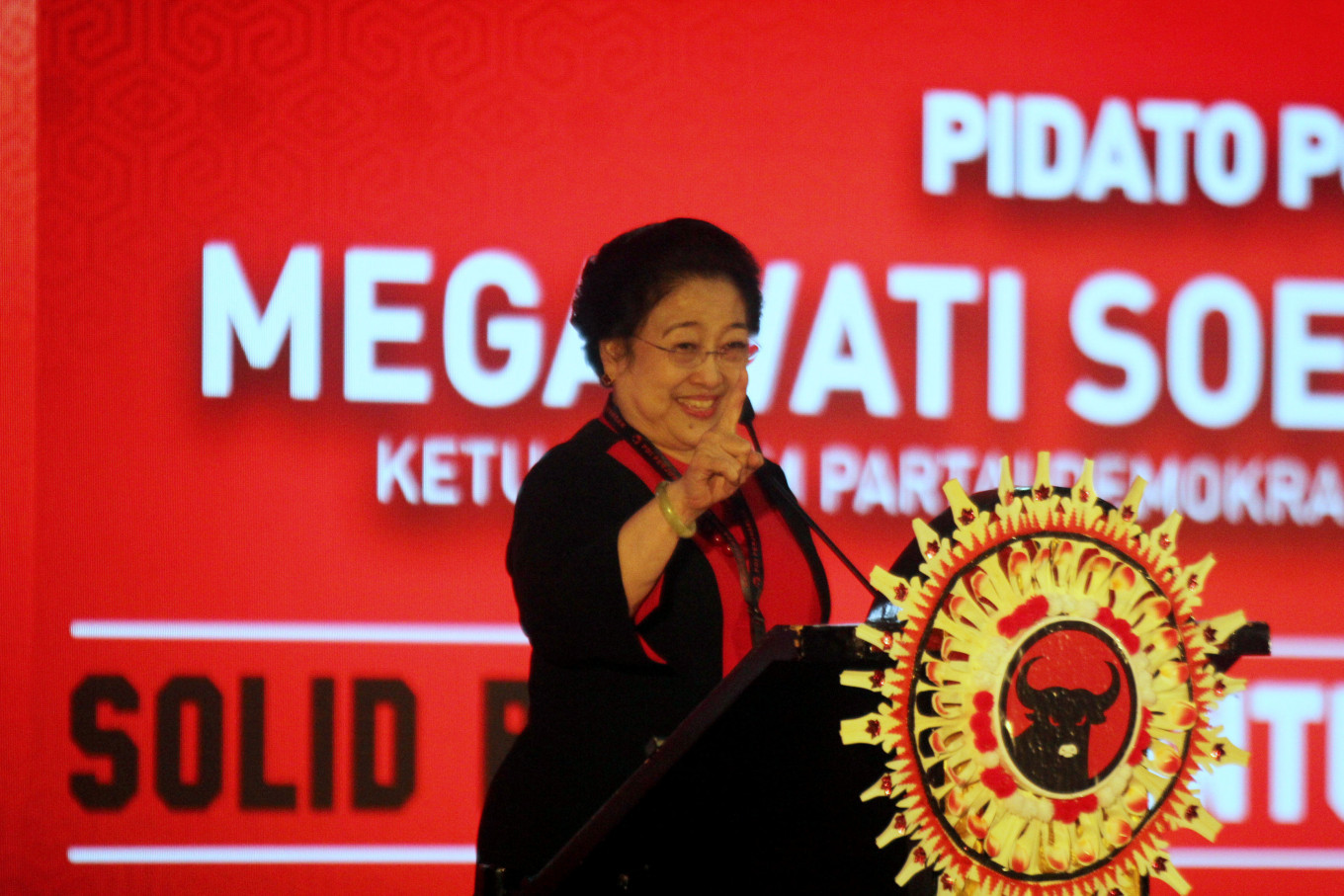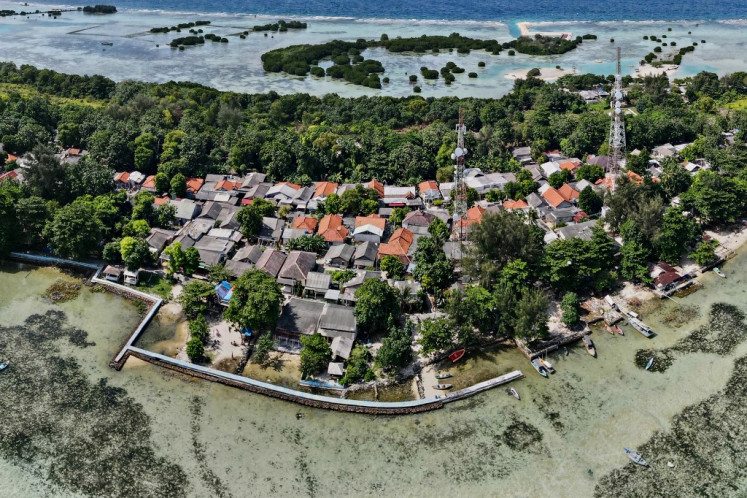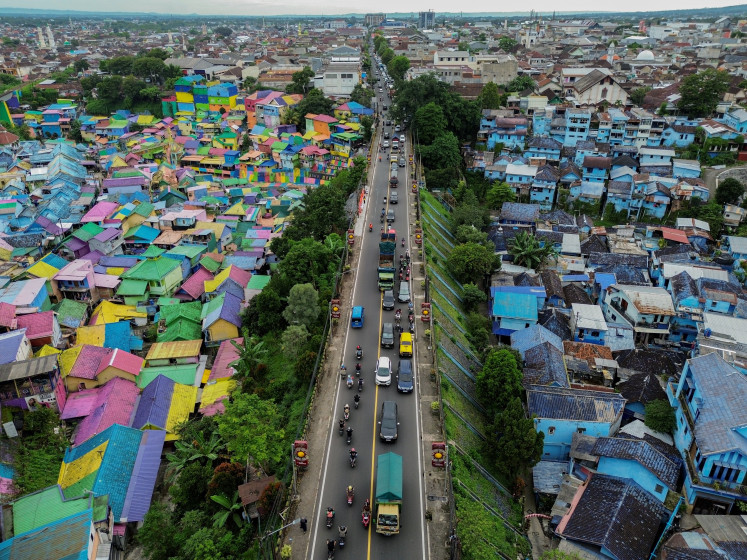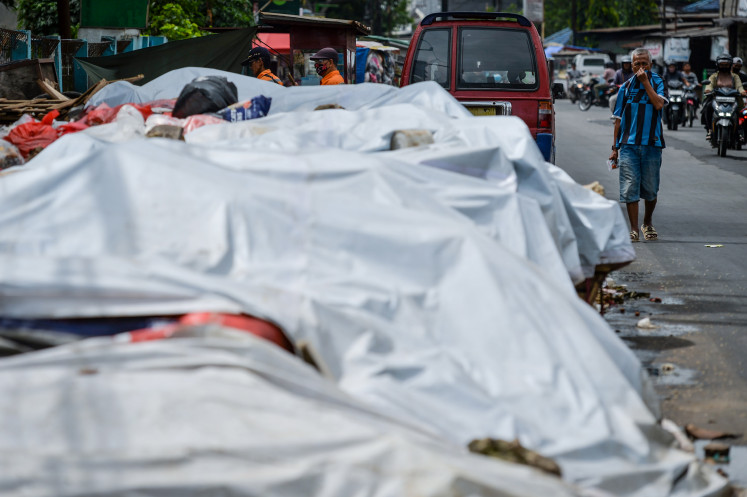Popular Reads
Top Results
Can't find what you're looking for?
View all search resultsPopular Reads
Top Results
Can't find what you're looking for?
View all search resultsThe July 27, 1996, riots: Megawati and Puan’s unpaid debts
It would not have been difficult to track down the main perpetrators of the violence, but Megawati did not push for it because some of them later became her friends and allies.
Change text size
Gift Premium Articles
to Anyone
Today, Megawati Soekarnoputri and her daughter Puan Maharani are hopefully willing to take a moment of silence to recall the bloody takeover of the Indonesian Democratic Party (PDI) headquarters on Jl. Diponegoro in Central Jakarta on July 27, 1996. Megawati likely recognizes – it is all right if she just wants to keep it to herself – that the sacrifice of dozens of young party supporters 25 years ago helped catapult her to the highest post of the country’s politics.
Puan may remember that her late father Taufik Kiemas, was, at that time, very busy helping those who had suffered military violence because of their loyalty to Megawati, whose popularity Soeharto considered a threat. She likely remembers the event vividly because she was 22 years old and a student at the University of Indonesia. It would be great if Puan still remembers that dozens were injured and many student activists were kidnapped while defending her mother. They risked their lives because they believed Megawati was sent by God to save Indonesia from Soeharto’s dictatorship.
Now called the Indonesian Democratic Party of Struggle (PDI-P), the party might never have reached its current strength without the immolations of Indonesian youths who adored Megawati as an icon of democracy and a leader who would bring Indonesia to prosperity and full-fledged democracy.
Who knows if Megawati regrets how she broke the hearts of the victims of the July 27 riots, an episode known by the portmanteu Kudatuli, who came to her and demanded that she bring to justice to those responsible for the attack on the PDI headquarters. It would not have been difficult to track down the main perpetrators of the violence, but she did not push for it because some of them later became her friends and allies.
When she was vice president, she was so upset by the cry for justice that she bluntly told the victims of the Kudatuli she had never asked them to fight for her. “Please tell your friends that I never asked you to support me. I never forced you to defend the PDI [headquarters],” Megawati said, as quoted by Agus Siswanto, one of the victims who met with Megawati in October 2000.
Following Megawati’s refusal to meet their demand, Agus and his friends reportedly sang the chorus of the famous Ambon song Siapa Suruh Datang Jakarta (Who Asked You to Come to Jakarta).
Siapa suruh datang Jakarta?
Sandiri suka Sandiri rasa.
(Who asked you to come to Jakarta?
You come of your own will, at your own risk).
There is no doubt that Megawati, chairwoman of the ruling PDI-P, is now one of the most powerful politicians in the country. While it is true that President Joko “Jokowi” Widodo holds the highest office, the country’s politics is significantly influenced by Megawati’s stances.
The July 27, 1996, riot actually led to the endgame of Soeharto’s regime. He did not want Megawati to pose a threat to him in the 1997 general elections.
Three months after the death of his wife Tien on April 28, 1996, Soeharto found no more barriers to acting against his chief opponent Megawati, daughter of his predecessor Sukarno. It was reportedly Tien’s influence that had kept Soeharto from attempting to destroy Megawati’s political career. It was also thanks to Tien that Sukarno’s children were allowed to operate gas stations in green belt areas on Jl. Sudirman and in Tebet, South Jakarta. Tien reportedly regularly reminded her husband that she did not want their children to be treated like Sukarno’s when Soeharto was no longer in power.
A few weeks before the riots, Soeharto recognized Megawati’s former political mentor, Soerjadi, as chairman of the PDI in place of Megawati following a government-backed congress. But Megawati stubbornly resisted.
Several days before the bloodshed, I had lunch with Megawati and a Japanese journalist at a Japanese restaurant in a five-star hotel in Gambir, Central Jakarta. She looked relaxed. From afar, we heard gunshots, which I guessed were fired by military personnel fighting Megawati’s supporters.
On July 27, I went to Megawati’s private residence in Kebagusan, South Jakarta. Taufik was receiving PDI supporters who were seeking refuge in the big house. Dozens of people were gathered in a huge tent in the front yard. Megawati remained inside, along with Puan and her old housemaid, who was ill.
In April 1997, Indonesia held general elections without Megawati. As predicted, Soeharto’s Golkar scored yet another landslide win. But three months later, the Asian financial crisis struck and devastated the Indonesian economy. Soeharto was confident that everything was under control, so he sought his sixth straight presidential term in 1998.
He was wrong. Antigovernment demonstrations demanding his resignation mounted, forcing him to step down on May 21.
The 1998 reform movement resulted in the first ever democratic election in 1999, which was won by Megawati’s PDI-P. But it was Abdurrahman “Gus Dur” Wahid who claimed the presidency after beating Megawati, who eventually settled for the vice presidency. In 2001, she replaced Gus Dur and became the country’s fifth president.
While in power, Megawati, strangely, displayed no willingness to bring those who had oppressed her to justice. Many might think she was emulating South African independence figure Nelson Mandela, who opted to promote reconciliation rather than to take revenge. Mandela was known for his “forgive but not forget” wisdom, but Megawati, on the other hand, chose not to pursue justice because she just did not care.
Today, she may want to refresh her memory about what happened 25 years ago. What about Puan, one of Megawati’s potential heirs?
It is not impossible that the mother and daughter will sing together: Siapa suruh datang Jakarta? Siapa suruh datang Jakarta? Sandiri suka sandiri rasa.
^^^
The writer is senior editor of The Jakarta Post.










